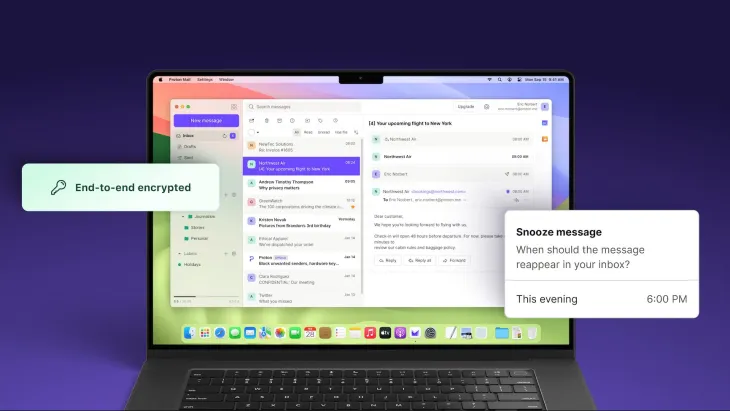Marqeta acquires two-year fintech startup Power Finance for $223 million in cash, marking the company’s first acquisition in its 13-year public existence.
Approximately one-third of the purchase price is due over a two-year period, subject to certain unstated terms. And if a specific, undisclosed milestone is reached within the next 12 months, Marqeta will pay an extra $52 million, bringing the entire acquisition cost to $275 million.

Marqeta acquires two-year fintech startup Power Finance for $223 million
Randy Fernando and Andrew Dust founded Power Finance in early 2021, and the New York-based company reported in September that it had raised $16.1 million in seed funding backed by Anthemis and Fin Capital. CRV, Restive Ventures (previously Financial Venture Studio), Dash Fund, Plug & Play, and a collection of angel investors are also investors. The corporation also established a $300 million credit facility at the time.
Also, see:
China’s Smartphone Market Slumped To A 10-Year Low In 2022
5 Powerful Korean Social Media Apps
Located in Oakland, California Marqeta, which went public in 2021 and is currently valued at approximately $3.7 billion, boasts that it “offers a single, global, cloud-based, open API Platform for contemporary card issuing and transaction processing.” In other words, it equips organizations, including fintech, with the means to offer cards, wallets, and other payment systems. Among its clients include Block (previously Square), Uber, Google, Affirm, DoorDash, JP Morgan, Citi, Goldman Sachs, Instacart, and Ramp.
The initial product from Power is a credit card issuing program designed for corporations, brands, and banks to embeddable fintech experiences, such as customized credit card programs, targeted promotions, and personalized incentives, into existing mobile and online applications.
The primary objective of Marqeta’s acquisition is to “substantially accelerate the capabilities” of its credit product. Specifically, the acquisition will enable Marqeta customers to create “a wide variety” of credit products and structures, according to the business, by leveraging Power’s data science toolset and its ability to integrate experiences within existing mobile and online applications. Historically, Marqeta focused on debit and prepaid cards, but in February 2021, it formally entered the consumer credit card market to assist other companies with the introduction of credit card programs.
Once the transaction is finalized, Power Finance’s CEO Randy Fernando will oversee the credit card platform at Marqeta.
Fernando stated in a written statement, “Companies like ours were made possible because of the path Marqeta blazed in modern card issuing, demonstrating the possibilities in payments with flexible and modern payment infrastructure. At Power, we built a full-stack, cloud-native credit card issuance platform, and by becoming a part of Marqeta we have the ability now to bring this innovation to a much larger market at a global scale.”
The acquisition was announced just three days after Marqeta announced the appointment of Simon Khalaf as its new CEO, starting January 31. Khalaf joined Marqeta as its chief product officer in June 2022 and began directing the company’s go-to-market organization in August 2022. Jason Gardner, who has expressed his conviction that running a public firm is “fundamentally different from running a private company,” will assume the position of executive chairman.
Khalaf told TechCrunch in an exclusive interview that Marqeta “definitely felt that the Power team has built something unique and something that aligns with Marqeta’s mission and who we cater to.”
Khalaf told TechCrunch in an exclusive interview that Marqeta “definitely felt that the Power team has built something unique and something that aligns with Marqeta’s mission and who we cater to.” “Our approach to credit so far has been the processor, but as customers have been asking us to do a lot of things in a highly innovative way, we looked at it and said, ‘We do need to own the full stack,’ ” Khalaf said.
Instead of spending the necessary resources to develop the technology it desired to give its customers, Marqeta chose to investigate purchase opportunities. Khalaf admits that some were amenable to negotiations while others were not. The company ultimately determined that Power was the best cultural and technological fit.
According to him, Marqeta operates on the idea that consumers increasingly desire customization.
“If you look at a credit card, not much innovation has happened to it,” Khalaf told TechCrunch. “But a lot of folks want a credit card to become alive with a credit limit that changes dynamically based on a user’s current financial situation, with rewards that change dynamically, and more importantly, that they can integrate into their e-commerce or retail workflows… That’s what Power has built.”
“Most” of Power’s nearly 30 employees will be joining Marqeta, the company said. Presently, Marqeta has nearly 1,000 employees.
Generally, Khalaf said that Marqeta has been witnessing hypergrowth but is now moving into a sustainable and profitable phase.
“We’re highly focused on sustainable, mature, and predictable operating cadences for the company,” he said. “The embedded finance market is growing very fast and it’s a market we’re going to spend a lot of energy on. The way we deliver products, and have packaged them to be API firs the embedded finance space is made for us, and we’re made for them. It’s a perfect match.”
Through the acquisition, Khalaf stated that Marqeta also wants to address the growing demand for burgeoning mobile-first retailers, creator markets, and labor marketplaces.
“We’re going to see a lot of new demand around co-brands,” he said. “Businesses want a branded card that is alive that is integrated with their properties. And we’re going to be able to serve that market better versus just issuing a piece of plastic with standard rewards.”
In November, Marqeta reported a net loss of $53.2 million, adjusted profits before interest, taxes, depreciation, and amortization (Ebitda) of $13.6 million, and revenue of $191.6 million – compared to $131.5 million in the same quarter of the previous year. Meanwhile, it recorded a 54% increase in overall processing volume to $42 billion. Once valued at $18 billion, Marqeta, like many other fintech, has seen its stock price and valuation decline as a result of rising inflation and interest rates. In spite of this, the company has continued to acquire new customers and strengthen its connections with existing ones, all while exceeding analyst expectations.
Gardner informed investors that his goal in hiring Khalaf as Marqeta’s new CEO was to find a leader “who would take Marqeta to the next level” after he had brought the firm “from zero to one.”
“That meant finding a leader with experience in building and operating a global business at scale while also focusing on a path to profitability,” he added. “… Our board of directors concluded that Simon was the clear choice to be Marqeta’s next CEO. His previous CEO experience and decades of experience scaling large technology organizations such as Twilio, Verizon, Yahoo, and Novell, his product insight, and his relentless focus on customer experience, will serve us well as we look to enter the next phase of our growth.”
Khalaf, for his part, stated that other acquisitions were possible but would be conducted with great care.
“Acquisitions is not a strategy, more of a tactic,” he told TechCrunch. “You decide which customers we want to serve, which market you want to go after, and then you evaluate whether you build, buy, or partner. That’s what we’re focused on right now.”
The acquisition of Marqeta is one of numerous M&A transactions in the fintech industry so far this year.


















